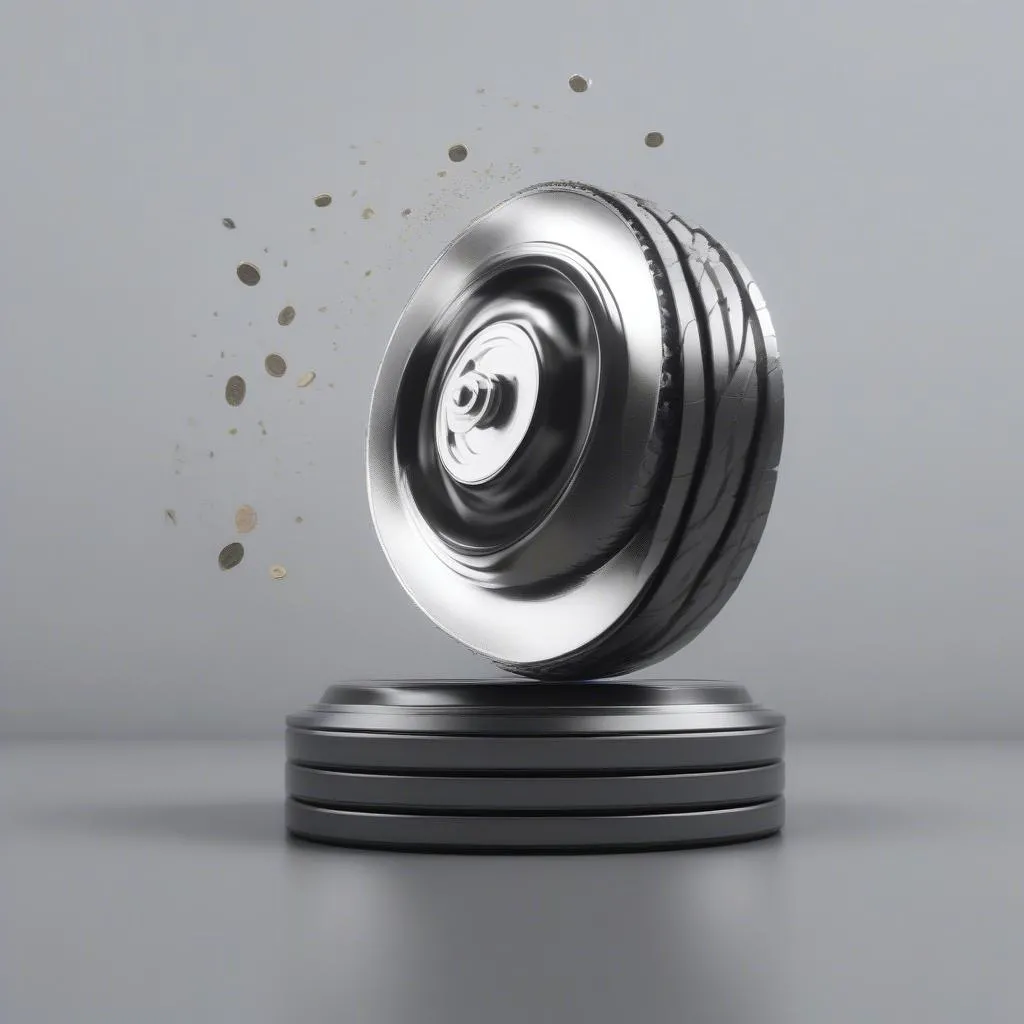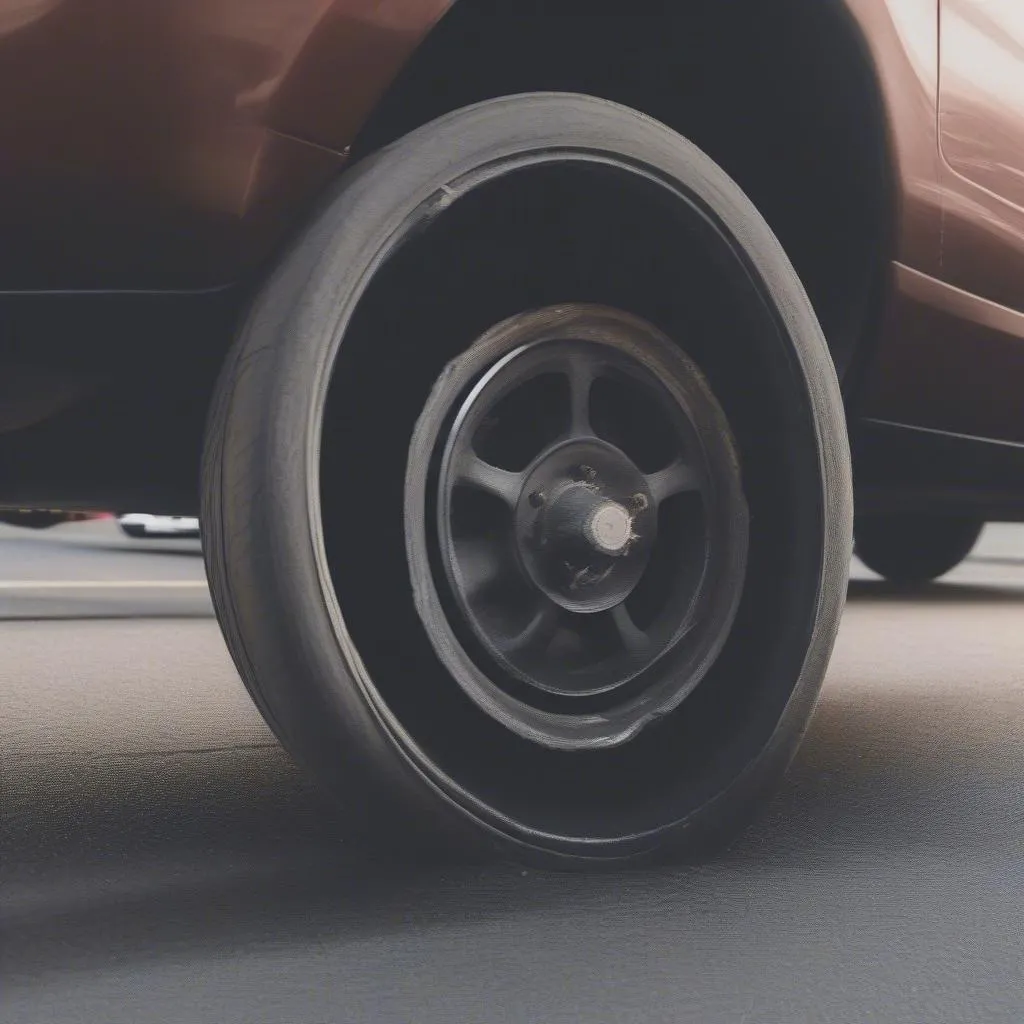So you just got your tires rotated, a routine part of car maintenance, and now you feel a vibration you didn’t before. Sounds familiar? Don’t panic! This is a surprisingly common issue and, in most cases, there’s a simple fix.
Let’s dive into the reasons behind those post-rotation vibrations and how to get your ride smooth again.
Why Does My Car Vibrate After a Tire Rotation?
Think of your car’s tires like a good pair of shoes. They wear down over time, and just like your feet, each tire wears differently. This is especially true with front-wheel drive vehicles where the front tires tend to wear faster.
Here’s the deal: When you rotate your tires, you’re changing their position on the car. This can bring slightly worn tires, or even tires with minor imbalances, to the front, where you’re more likely to feel them.
There are a few common culprits:
1. Tire Imbalance
This is the most frequent reason for post-rotation vibrations. It happens when the weight distribution around your tire and wheel assembly is uneven. Even a small imbalance can cause noticeable vibrations, especially at higher speeds.
Imagine: You’re spinning a coin on a table, and it wobbles instead of spinning smoothly. That’s similar to what happens with an imbalanced tire.
 Coin Spinning Unbalanced
Coin Spinning Unbalanced
2. Improper Tire Inflation
Tire pressure plays a crucial role in a smooth ride. Overinflating or underinflating your tires, even slightly, can lead to vibrations after a rotation.
Think about it: Have you ever ridden a bike with a flat tire? It’s bumpy and uncomfortable. Similarly, improper tire inflation throws off your car’s balance and creates those annoying vibes.
3. Alignment Issues
While not always directly related to tire rotation, misaligned wheels can become more noticeable after your tires are moved around.
Here’s how: Misalignment causes your tires to pull in different directions, leading to uneven wear and potential vibrations.
 Car with Misaligned Wheels
Car with Misaligned Wheels
4. Other Potential Causes
Less commonly, vibrations after a tire rotation could indicate worn suspension components, warped brake rotors, or even a bent wheel.
Getting Back to Smooth Driving: What to Do
Experiencing vibrations? Don’t worry! Here’s a roadmap to get you back on track:
-
Check Your Tire Pressure: This is the easiest and cheapest place to start. Refer to your owner’s manual or the sticker on your driver’s side doorjamb for the recommended tire pressure for your vehicle.
-
Get Your Tires Balanced: If your tire pressure is good but the vibrations persist, a tire balancing is likely the solution. A mechanic will add small weights to the wheel to counteract any imbalances.
Pro Tip: “Regular tire balancing is crucial for a smooth ride, especially after a rotation,” says John Miller, a veteran mechanic with over 20 years of experience. “It prevents uneven tire wear and extends the life of your tires.”
-
Consider an Alignment: If the vibrations are accompanied by your car pulling to one side or an off-center steering wheel, an alignment check is a good idea.
-
Inspect for Other Issues: If none of the above solves the problem, it’s time for a more thorough inspection by a trusted mechanic to check for worn suspension components or other potential culprits.
Frequently Asked Questions about Car Vibrations After Tire Rotation
Q: How soon after a tire rotation should I expect vibrations to go away?
A: If the vibrations are solely due to tire position and not an underlying issue, they should disappear immediately after balancing or other necessary fixes.
Q: My car only vibrates at high speeds after tire rotation. Is that normal?
A: No, vibrations at any speed, particularly high speeds, aren’t normal and should be addressed. They often point to tire imbalance, which can worsen with speed.
Q: Can I rotate my tires myself?
A: While it’s possible, it’s recommended to have a professional rotate and balance your tires to ensure it’s done correctly.
Other Common Car Vibration Scenarios
- Car vibrates when braking: This could indicate warped brake rotors.
- Car vibrates at idle: This might point to issues with engine mounts or spark plugs.
- Steering wheel vibrates: This often suggests an alignment issue or problems with the steering system.
Need Help with Those Vibrations? We’re Here for You!
Experiencing post-rotation shakes? Don’t let it ruin your ride. For expert advice and assistance with all your car maintenance needs, contact us on WhatsApp at +84767531508. Our team of automotive specialists is available 24/7 to help diagnose the problem and get you back on the road smoothly.
Remember, a smooth ride is a happy ride!